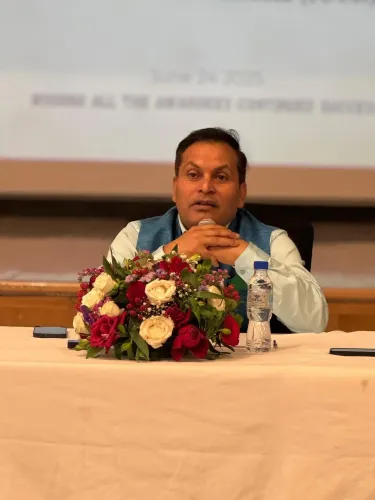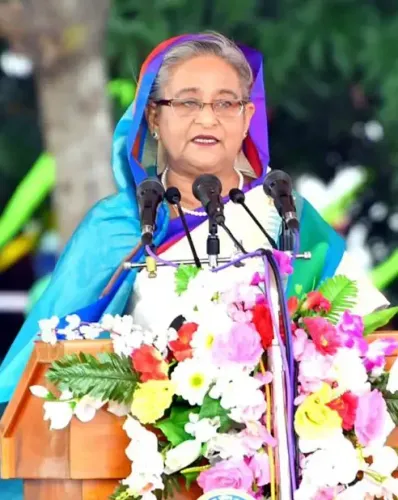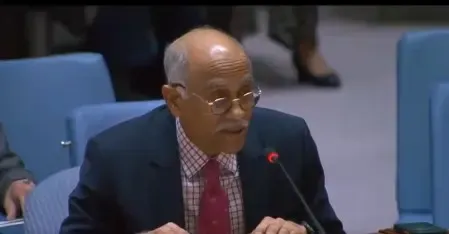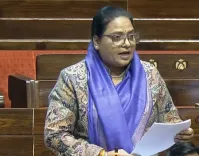UN Agency Voices Alarm Over Girls' Education Crisis in Afghanistan

Synopsis
Key Takeaways
- Girls in Afghanistan have been denied primary education for three years.
- Hunger affects one in three Afghans.
- 1.4 million Afghan girls are deprived of schooling.
- UN calls the Taliban a "dysfunctional regime" for denying girls education.
- Education Cannot Wait reports an annual increase in girls barred from secondary education.
Kabul, March 10 (NationPress) The United Nations World Food Programme (WFP) on Monday drew attention to the fact that girls in Afghanistan have been unable to attend primary school for the third consecutive year, emphasizing that no child should head to school on an empty stomach.
This appeal was made ahead of International School Meals Day on March 13.
"For three years now, girls in Afghanistan have not been able to attend primary school. This is also where they receive the only nutritious food they consume all day. On International School Meals Day and every day, no child should go to school hungry," the World Food Programme in Afghanistan posted on X on Monday.
Afghanistan is the only nation globally where secondary and higher education is strictly prohibited for girls and women. According to UNESCO data released in 2024, 1.4 million Afghan girls have been systematically denied an education. Access to primary education has also plummeted, with 1.1 million fewer girls and boys attending school.
A report from the United Nations Children's Fund (UNICEF) states that Afghanistan's education system has been severely damaged by over three decades of persistent conflict, making it difficult for most children, particularly girls, to complete primary school, especially in rural regions.
During the ongoing 58th session of the Human Rights Council, UN High Commissioner for Human Rights Volker Turk remarked that women in Afghanistan are currently being stripped of their basic rights.
"In Afghanistan, women and girls face a form of gender apartheid that is unmatched in the world today. They are effectively prisoners in their own homes, deprived of the most basic freedoms necessary for a normal life, including movement, education, and employment. I am gravely concerned about the long-term future of a nation that is inflicting harm upon itself on a massive scale," Turk stated.
Hunger impacts one in three Afghans. Without immediate financial aid, millions will lack the food they require. According to a report by the World Food Programme (WFP) in 2024, one in three Afghan girls cannot complete their primary education due to widespread poverty.
Recently, a UN-supported fund, 'Education Cannot Wait', labeled the Taliban's governance as a "dysfunctional regime" that not only denies girls the right to education but also hinders half the population from participating in the recovery of the country.
"Currently, 1.5 million Afghan girls are barred from attending secondary school due to restrictions implemented by the Taliban. This number increases by 300,000 every year, and it will soon escalate to millions," stated Yasmine Sherif, Executive Director of Education Cannot Wait, a UN-supported global fund for education in emergencies.










